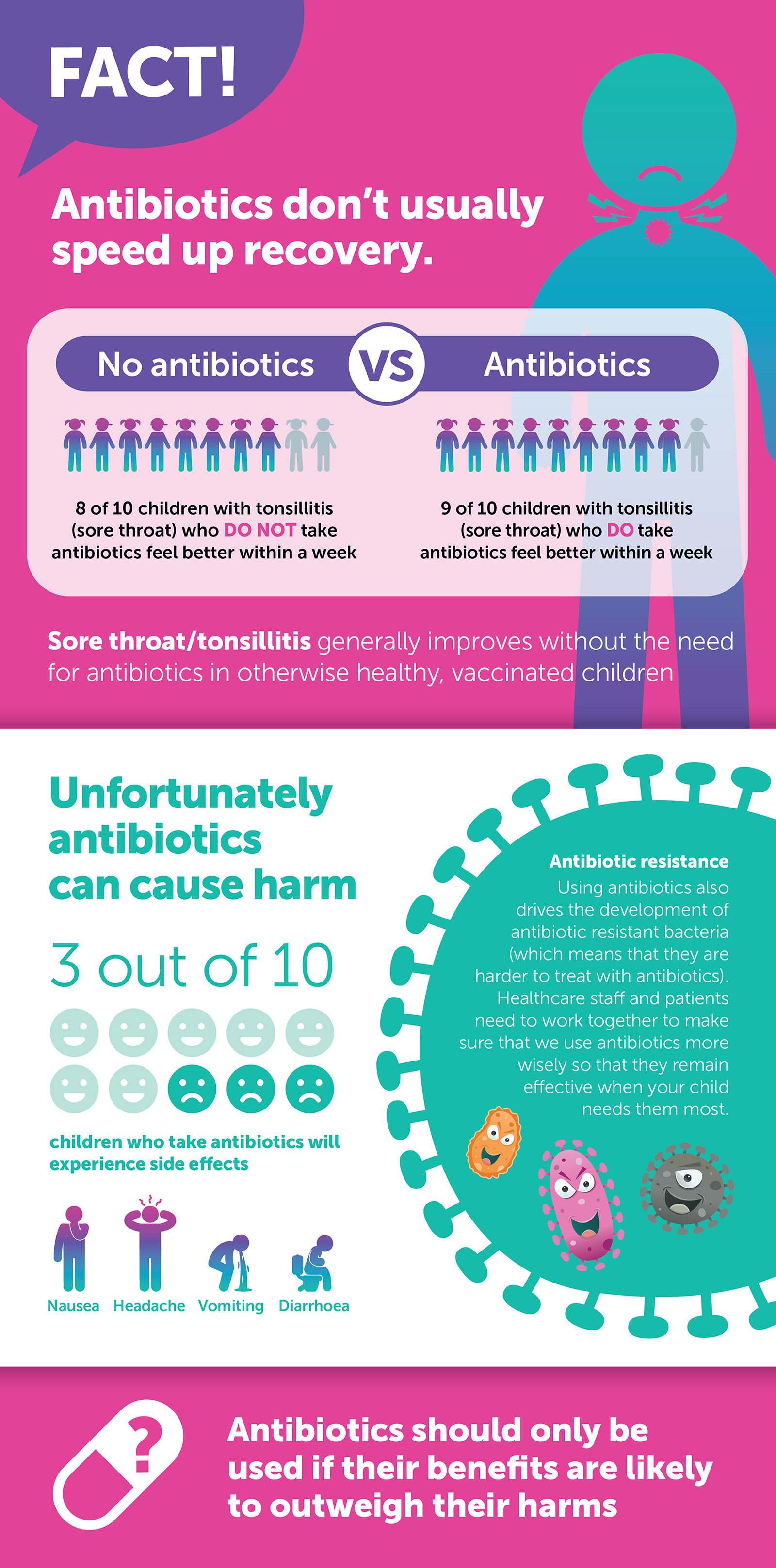Sore throat is extremely common in children, teenagers and young adults and is often associated with a high temperature. Tonsils are small glands that sit either side of the throat and are sometimes affected (tonsillitis).
Symptoms of tonsillitis
- Sore throat and pain on swallowing
- Fever can be present
- Swollen, painful glands in your neck
- Tonsils red with pus
These symptoms usually improve within 4-7 days.
Causes
Most cases of sore throat in young children (under 5 years of age) are caused by viral infections; your child may also have a runny nose, cough or earache. Tonsillitis is sometimes caused by a bacterial infection, usually due to a group A streptococcus bacteria (strep throat).
Treatment
Most children with tonsillitis/sore throat do no require treatment with antibiotics. Antibiotics rarely speed up recovery and often cause side effects such as rash and diarrhoea. However with recent concerns regarding an invasive Group A Streptococcus we currently suggest a pragmatic approach where pain thresholds are considered and a value of 3 triggers antibiotic prescribing at the moment.
Use the FeverPAIN clinical score to aid your treatment decision. Score 1 point each for presence of:
- Fever - history of fever in last 24 hours
- Purulent tonsillar exudate
- Acute onset of illness – 0-3 days
- Inflamed tonsils – must be severe inflammation to score
- No cough
Score 0-1 - use NO antibiotic strategy
Score 2-3 and symptoms are present for 3 days or less
- use NO antibiotic strategy.
- advise will need review by GP if no improvement after 3 days, or symptoms worsen
Score 2-3 and symptoms are present and not improving after 3 days
- prescribe antibiotics.
- consider throat swab.
Score ≥ 4 - prescribe antibiotic

However, if your child has any features of severe infection (amber or red features above), they will need to be urgently seen by a healthcare professional who may decide that your child may benefit from antibiotic treatment.
You can help relieve symptoms by:
- Giving your child paracetamol or ibuprofen to help relieve pain
- Encourage your child to drink plenty of fluids
- You can buy a throat spray from your pharmacist which may help with pain
Prevention
It is not always easy to avoid catching these infections. However, good hygiene practices can prevent infections spreading.
- Wash your hands regularly
- Use a tissue when coughing or sneezing and put it in the bin
- Avoid sharing glasses or utensils with people who are unwell
Feedback Question: Has the advice on this page helped you with a healthcare decision?




